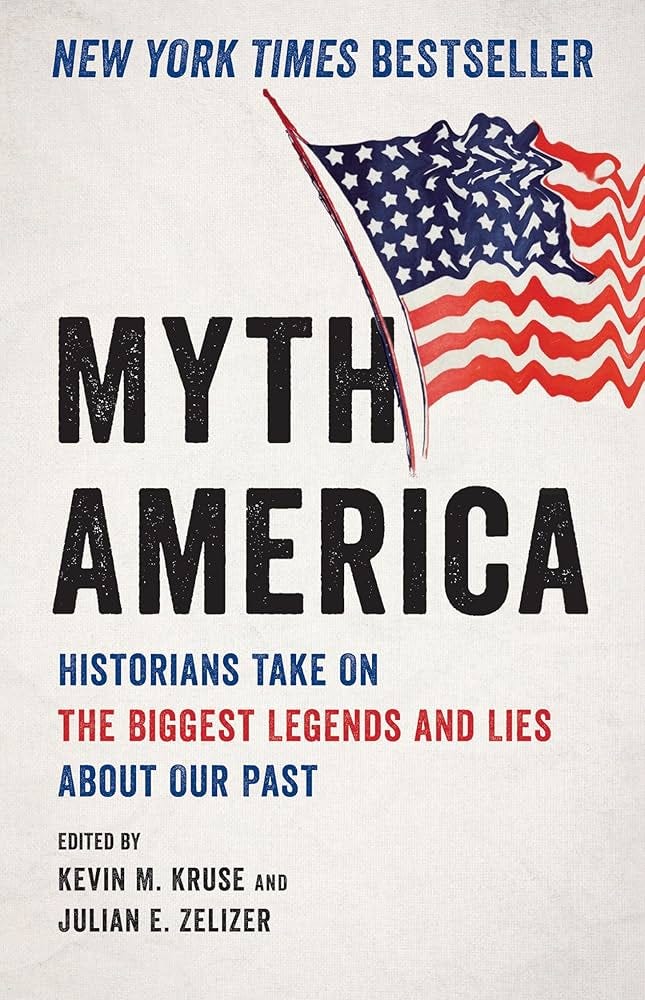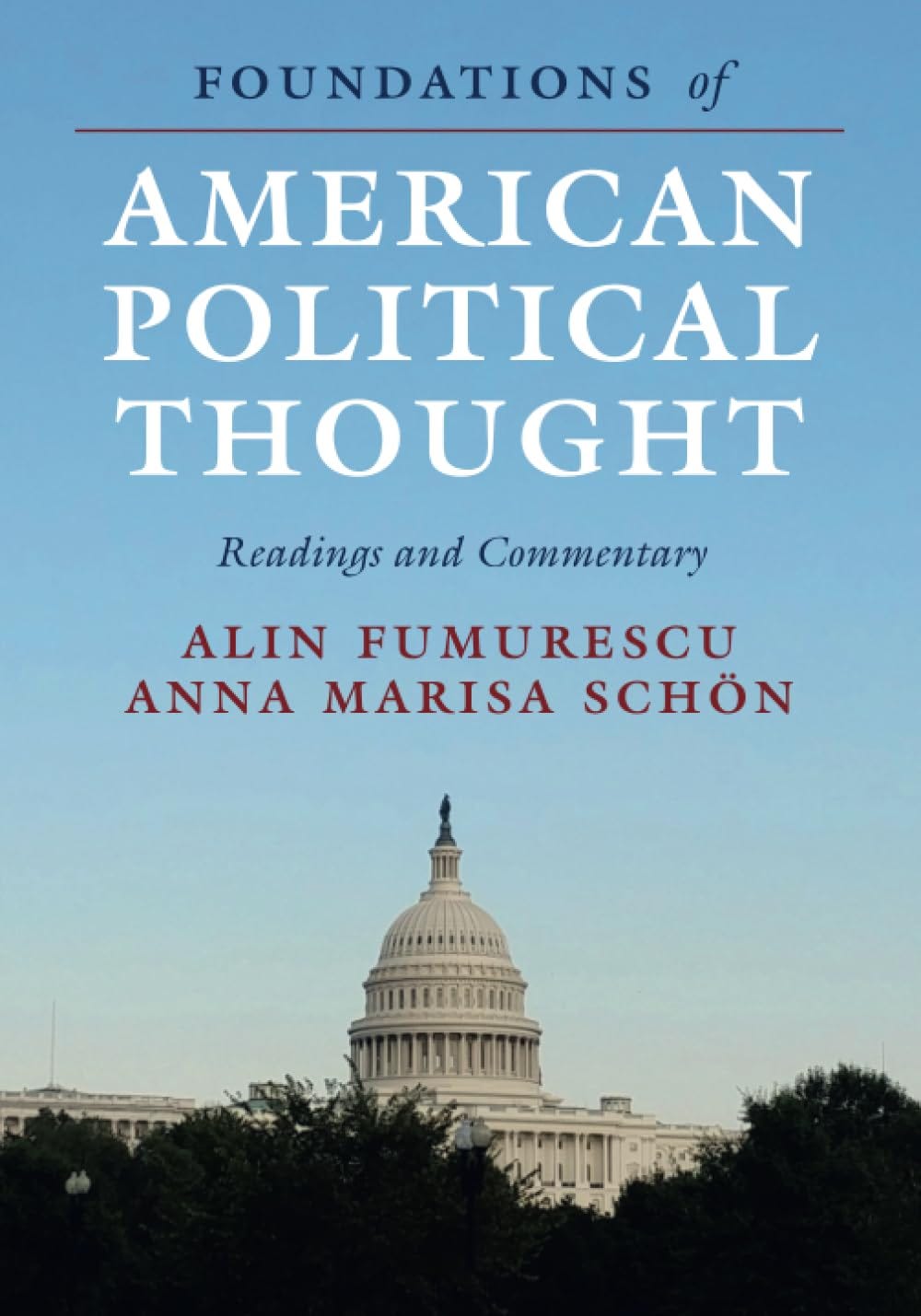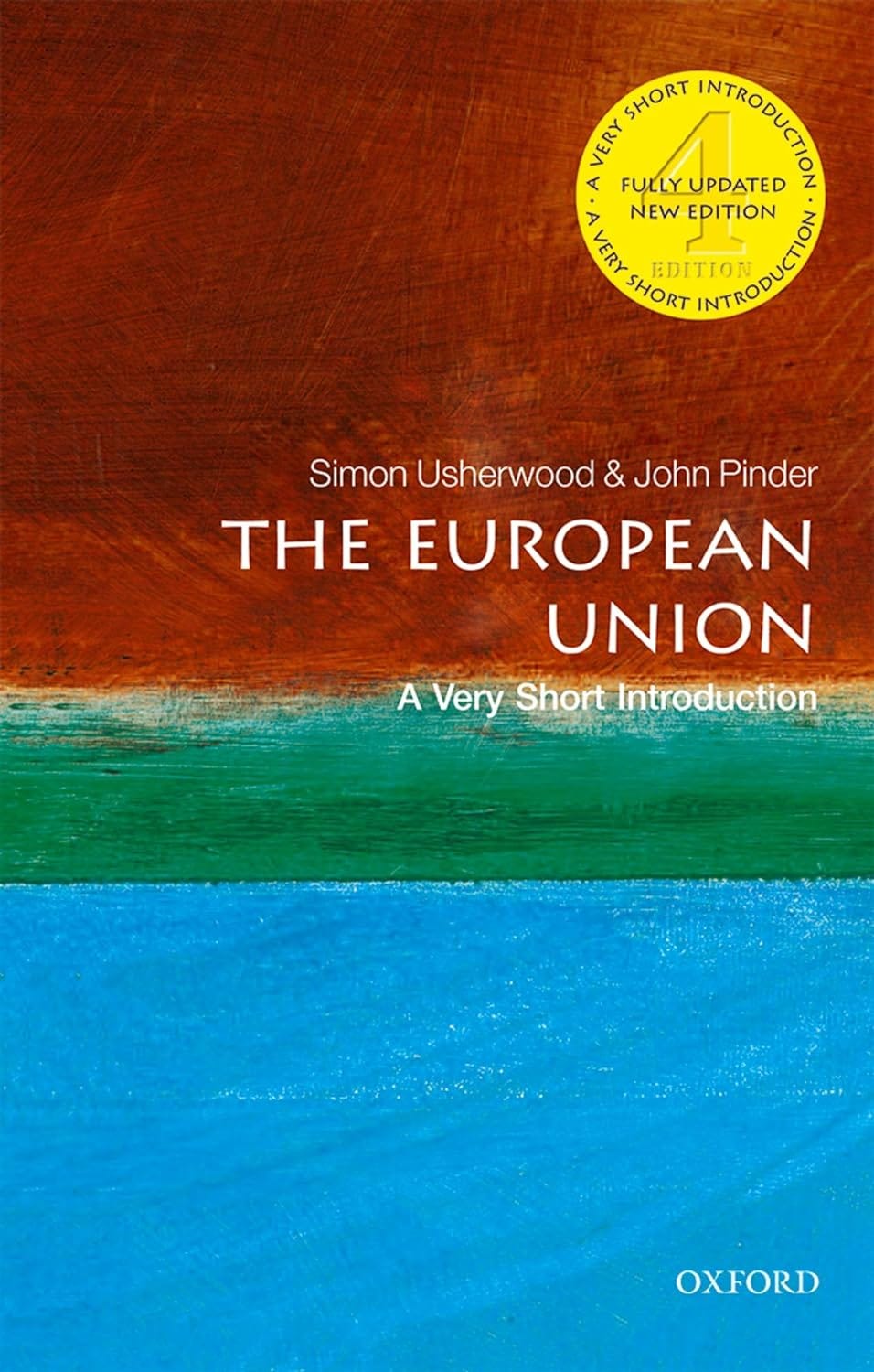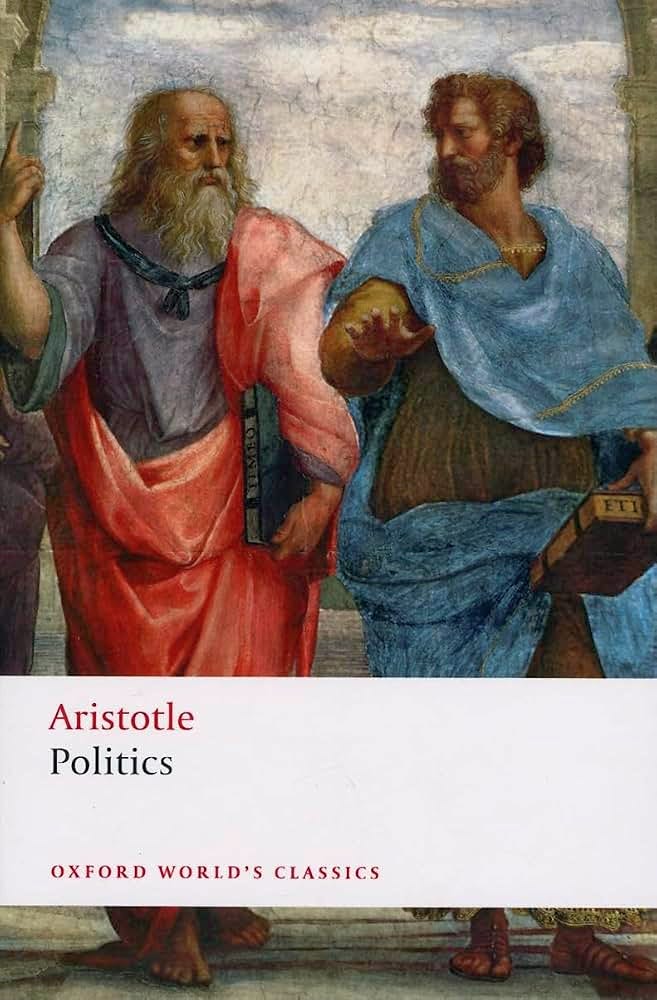How to know what to read
Tips for discovering and appreciating the world’s best nonfiction books
If a man wants to read good books, he must make a point of avoiding bad ones; for life is short, and time and energy limited.—Arthur Schopenhauer
Time is precious; it’s the the stuff of your life. This being the case, you should avoid wasting time with bad books. But how to identify the right books?
In this post, I offer some suggestions for getting to grips with good books and in particular how to survey literature to figure out what books are out there and whether they are worth reading for you.
To get a sense of the general picture, and to be prepared to appreciate unfamiliar topics, one must have quality introductory material that is wide-ranging, as this will both make the books intelligible to a general reader (i.e., you) and give you a sense of the whole field in all its diversity of perspectives. This can also help you decide what makes sense for you to read next.
A key concept is information density: reading the books which provide us the most insights and intellectual stimulation per page. The highest information density is typically found when a knowledgeable person is forced to be succinct.
I am speaking here of nonfiction books, in particular academic books and classics. These are potentially the best books to understand a subject: academics spend their whole lives studying, and grappling with opposing arguments on, a particular subject, while classics represent the peaks of human literary and/or intellectual achievement, as recognized by intergenerational consensus.
With billions and billions of human beings having already lived and died on this Earth, you will be astonished to learn that you will often have not been the first come up with the most brilliant and original ideas, but these will have already occurred between the ears of some of the more remarkable people that came before you. It’s not a question of being entrapped by tradition but building on previous work: a common theme of much intellectual history and literature is the fertile recombination or adaptation of previous work by new thinkers. Even the greatest geniuses rarely create new things completely out of nothing but, as the saying goes, stand on the shoulders of giants.
Classics are often not easy to read however, especially at first. One has to be equipped and ready to appreciate them. As to books by academics, Richard Hanania argues that most should be avoided as these tend to be too repetitive and one-sided.
Oftentimes, an academic’s flagship article on a topic will indeed tell you most of what you need to know. I would argue Samuel Huntington’s famous “clash of civilizations” article, Robert Plomin’s review articles on the new genetics of intelligence and replicated findings in behavioral genetics, and Anu Bradford’s article on the Brussels Effect (the name for the European Union’s international regulatory impact) all fall under this category: each succinctly presents their key arguments and facts without needless padding.
Academics sometimes are capable of writing standalone books that are worth reading. These are often written in a more humanistic style and able to not merely cite statistics and studies, but provide wider thinking on the meaning of these data, the different ways of approaching them, and how humans/societies have grappled with them (or ignored them). Examples of this kind of worthy book include Francis Fukuyama’s The End of History and the Last Man and Steven Pinker’s The Blank Slate. Because such books aren’t just repeating themselves and piling on facts, they also tend to be less boring.
With all that said, I suggest the following ways of identifying and becoming familiar with different academic topics and classics, which can help both be prepared for them and decide which ones are most worthwhile to read.
Multi-author edited books
As far back as my days in uni, I noticed that I often got a lot more by reading chapters by different authors in an edited academic book on a given topic than by trying to get through a book by a single author. If you read a single author, you are beholden to a single perspective for 200 or 400 or more pages, which may or may not give you a sense of its biases and of the broader field, or may simply be mediocre.
By contrast, an edited book will typically feature a dozen or so different authors talking about the same or related topics. Each author is forced to be succinct and provide you a maximum of the most persuasive arguments and facts for why their perspective is relevant and true. In addition, you get a dozen or so different perspectives, or at least styles of argument and approach. As such, even if some of the authors aren’t great, you will get a lot more out of the book than being stuck with a single bad or merely OK author for hundreds of pages.
For instance, while I didn’t like the framing of most of the pieces in Kevin Kruse and Julian Zelizer’s edited Myth America, I did learn a lot from them in terms of facts about different facets of American history. In addition, I thought some of the chapters were very good and informative, such as Daniel Bell’s on American exceptionalism and Akhil Reed Amar on the “geostrategic” rationale of the U.S. Constitution.
Similarly, I recently read Gary Gregg and Matthew Spalding’s Patriot Sage, a book of essays by different authors on George Washington, which I think gave me a better sense of the perspectives on the man and the most salient points of his character and career than if I had read a single-author biography.
There are countless varieties of such edited academic books. Some may have a more textbook style (Princeton Guides) or be more about providing a survey or sample of the academic literature (Cambridge Companions, Oxford Handbooks), or they may just be some academic’s idea for getting him and his colleagues published quickly. (Getting an article published in a journal can take a lot longer than getting a chapter published in an edited book.) But, in all cases the density and diversity of information is likely to be high, the books are likely to give you a good sense of the wider field, and you can easily peruse the different sections and pick the ones of most interest to you.
Interviews with the author
While reading a book might take 20 or 30 hours, listening to an interview with the author will take less than an hour and is a great way of getting a sense of a book. In an interview, authors necessarily have to be succinct and try to whet your appetite by explaining their book’s relevance and sharing some of the high points.
I often find this is a particularly good way of being introduced to biographies and hsitories: the author will bring their subject to life in an immediate way which may not be possible with the mere written word.
C-SPAN’s Bookshelf podcast series has great interviews of historical, political, and journalistic authors, but there are many other good shows out there.
Selections of classic or significant primary texts
One of my favorite kinds of books is edited collections made up of significant documents and/or extracts from classic texts.
Any given political or intellectual tradition is massive. Even individual works in such as a tradition, such as Thomas Jefferson’s Notes on the State of Virginia or Charles de Gaulle’s War Memoirs, can be dauntingly long, sloggy, or contain a lot of information of purely historical value (like, in the case of Notes, lists of rivers and geographical features and such).
A good editor however can select the most influential or remarkable passages from a variety of such works, while also providing context to understand and situate what you are reading. As an example, you will learn more about the American political tradition by reading Alin Fumurescu and Anna Marisa Schön’s Foundations of American Political Thought—with its Christian, liberal, and republican strands—than by reading Jefferson’s Notes. Similarly, I am a big fan of Jeremy Noakes’ Nazism series of primary documents, which gives more insight into understanding the rise and fall of Nazism than if you were to struggle through Mein Kampf.
These kinds of edited volumes come in all shapes and sizes. Their titles will often feature words like “Portable” (e.g. Penguin’s Portable John Adams, very good), “Reader,” or “Documentary Reader/History.”
The Library of America publishes many big (to not say comprehensive) high production-value books collecting the works of the political, intellectual, and literary greats of American history. However, the presentation and context is minimalist, and the material often quite dense and/or raw, making these hard to appreciate on their own. As such, these books are typically better read alongside a biography of or general introduction to the author in question.
Oxford’s Very Short Introductions
I’ve recently become a fan of Oxford University Press’s Very Short Introduction (VSI) series. These cheap little paperbacks (usually 120-150 pages) are often a great way of breaking into a new topic or even broadening one’s perspective on a familiar one. With over 750 titles, the series covers everything from Abolitionism to Zionism.
The contents of these little books are variable, both in substance and quality. However, in general they give a sense both the substance of the topic, reflecting the author’s point of view, and of the wider academic debates and studies on various aspects of the topic. VSIs are often perfect for becoming familiar with the current state of the academic literature and debates on a topic.
Because of their brevity, some VSIs may be disappointingly vague or general in their treatment of the topic, but in my experience this is the exception.
Introductions to Oxford World Classics
Here’s Oxford again. Well, I can’t speak highly enough of the Oxford World’s Classics series. It’s not just that you get cheap, recent, high-quality translations and/or editions of classic texts in human thought and literature, but you typically get excellent and ample introductory texts and footnotes to understand and appreciate what you’re reading.
Reading classics “raw” can be ungratifying if you don’t have some sense of what was new when the work was written, some signposting as to what its meaning and themes are, and the significance of its legacy and influence. OWC introductions tend to provide just that.
Typically, an OWC introducer is an academic who has spent his life studying the author and is now forced, in 20 or 40 pages, to make their subject interesting and intelligible to the general reader and university students. This is perfect for surveying your subject and, if it makes sense to do so, reading on.
OWC’s main competitor is Penguin Classics, which has a broader selection but usually less informative introduction and footnotes. In Penguin’s favor, I would say their translations of classic fiction are often superior—or at least more poetic and compelling—whereas I find OWC’s often feel flat, perhaps because over-literal.
Podcasts: In Our Time and Literature & History
Podcasts are a dime a dozen. Some are very good at what they do. For introductions to nonfiction, I recommend two in particular: the BBC’s In Our Time and Doug Metzger’s Literature & History.
In Our Time is a venerable podcast hosted by Melvyn Bragg which now has over 1000 episodes covering all sorts of cultural, historical, philosophical, and scientific topics. The format is simple: invite three academic experts and ask them about the topic, often bouncing from one to other or poking them to strengthen or clarify their case.
In 45 minutes, you can only scratch the surface of the topic, but the academics are forced to condense their knowledge as much as possible and highlight what is most relevant. I’ve been listening to In Our Time for years, at least as far back as their 2011 show on Xenophon, and I keep coming back.
Literature & History by contrast is an independent one-man show. Literature PhD Doug Metzger has done astonishing work putting together almost 100 shows covering virtually the whole of ancient Middle-Eastern and Greco-Roman literature from Mesopotamia to the fall of Rome.
I said this post would cover nonfiction so here I make a kind of exception. L&H is about classic works of fiction and their historical context. So it’s not just about the Tower of Babel or the Iliad or Egyptian wisdom literature, but the human world and lives that these reflect and encapsulate. And Metzger puts on a phenomenal show in the process. I particularly recommend his episodes on the Hebrew Bible, the Iliad, and Greek plays (I couldn’t appreciate the latter until I listed to his shows, particularly on the terrifying Medea and the hilarious Aristophanes).








